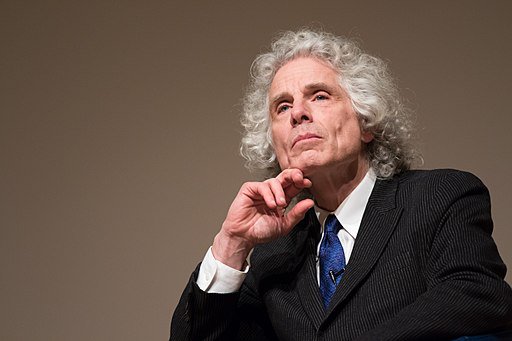Cognitive scientist and linguist Steven Pinker presented this year’s Beatty Lecture to the McGill community and the general public on Sept. 25. Every year, the Beatty Lecture brings leading thinkers to McGill to present a public talk on a topic of their choice.
During the online lecture, which drew in nearly 500 live viewers on Youtube, Pinker discussed the concept of human progress and argued that the human condition has been improving overall. Pinker attributed this phenomenon to values from the Age of Enlightenment such as reason, science, and humanism.
Pinker is the 90th presenter to give a Beatty Lecture at McGill. The lectureship was established in 1952 following a $100,000 donation to McGill University by Dr. Henry A. Beatty. The annual lecture honours Beatty’s late brother Sir Edward Beatty, who was a president of the Canadian Pacific Railway.
Pinker attained the status of a public intellectual after writing multiple critically acclaimed books on science, psychology, and history. In his Beatty Lecture, he expanded upon ideas published in his 2018 book, Enlightenment Now.
Citing statistics that show increasing life expectancies, the fall of extreme poverty, and the decline of slavery, Pinker argued that the human condition has markedly improved over the last 300 years.
“Slavery used to be practiced in every civilization,” Pinker said. “We are living in an unprecedented 40-year period in world history, where slavery is not legal anywhere on Earth.”
Pinker claimed that despite the economic and social devastation caused by COVID-19, it remains essential to appreciate the worldwide response to contain and study the virus in the 21st century. Comparing COVID-19 to previous pandemics, Pinker pointed out it took 15 years to find an effective treatment for HIV and 350 years to find a vaccine for rubella.
“We identified the pathogen within days of discovery of the epidemic,” Pinker said. “Currently, about 100 vaccines are in development [….] It’s important to realize what an advance this is in a historical context.”
Clara Saliba,U3 Arts, attended the lecture but was disappointed that Pinker’s talk did not focus on his research in linguistics. She also found aspects of the talk oversimplified.
“I do agree that the world has progressed, [in the sense] that it’s less violent, safer, a better place to live in than it was a few years ago,” Saliba said. “[But] I found the focus on Enlightenment values and humanism very Eurocentric.”
Despite Pinker’s popularity, his theory of human progress remains controversial. Following the publication of Enlightenment Now, some critics found fault with the quality of Pinker’s scholarship, citing his historical understanding of the Enlightenment and his claim that countries reduce pollution as they grow more prosperous.
Pinker has also faced criticism for his cultural views. In July of 2020, hundreds of scholars signed a letter calling for the removal of Pinker as a distinguished academic fellow of the Linguistic Society of America, citing some of his previous statements on racial justice. Among them was one tweet from 2015 in which Pinker wrote, “Police don’t kill blacks disproportionately.”
During the Q&A session of the talk, an anonymous audience member asked Pinker to weigh in on the “Take James McGill Down” campaign—a student-led initiative demanding the removal of the statue of James McGill from campus, the founder of McGill who also enslaved people.
“In terms of pulling down statues, I think that’s a product of miseducation,” Pinker said. “We tend to underestimate the situation, the context, the historical period, so we tend to think that bad things are done by bad people. That is bad psychology.”
Daniel Horen Greenford, a Ph.D. candidate in Geography, Planning, and Environment at Concordia University and student of McGill’s Economics for the Anthropocene program, felt that Pinker’s optimistic beliefs are incompatible with the growing climate crisis.
Greenford, who previously criticized Pinker’s scholarly assessment of climate change in the Montreal Gazette, doubted Pinker’s beliefs that technological leaps will halt climate change. Greenford argued that Pinker’s scholarship defended the status quo.
“His main thing is cherry-picking things that help push for the narrative that we should stay the course,” Greenford said. “You can’t solve the climate problem without having a more serious restructuring of the economic system.”










Did anybody ask Pinker about his long-time support for race science, including his promotion of the career of professional racist Steve Sailer?
https://www.pinkerite.com